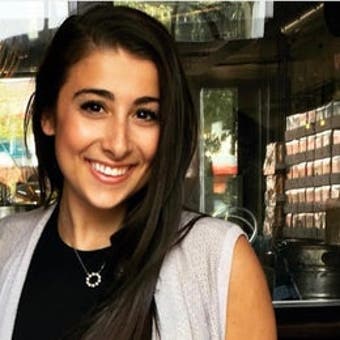Fox News Flash top headlines for August 18
Fox News Flash top headlines are here. Check out what's clicking on Foxnews.com.
The third of three men convicted of hijacking a school bus full of children in Chowchilla, California, in 1976 – in what a prosecutor called "the largest mass kidnapping in U.S. history" — is being released by the state's parole board.
The California parole board decided this week to release 70-year-old Frederick Woods, after two members recommended the move in March despite that previous panels had denied him parole 17 times.
"His mind is still evil and he is out to get what he wants"
Woods and his two accomplices, brothers Richard and James Schoenfeld, were from wealthy San Francisco Bay Area families when they kidnapped 26 children and their bus driver, Ed Ray, near Chowchilla in 1976. The town is about 125 miles from San Francisco.
The three buried the children, ages 5 to 14, along with Ray in an old moving van east of San Francisco – with little ventilation, light, water, food or bathroom supplies. They then requested a $5 million ransom. Woods was said to have acted as the group's ringleader.
CHOWCHILLA SCHOOL BUS ABDUCTION VICTIMS SPEAK OUT AFTER KIDNAPPER IS RECOMMENDED PAROLE
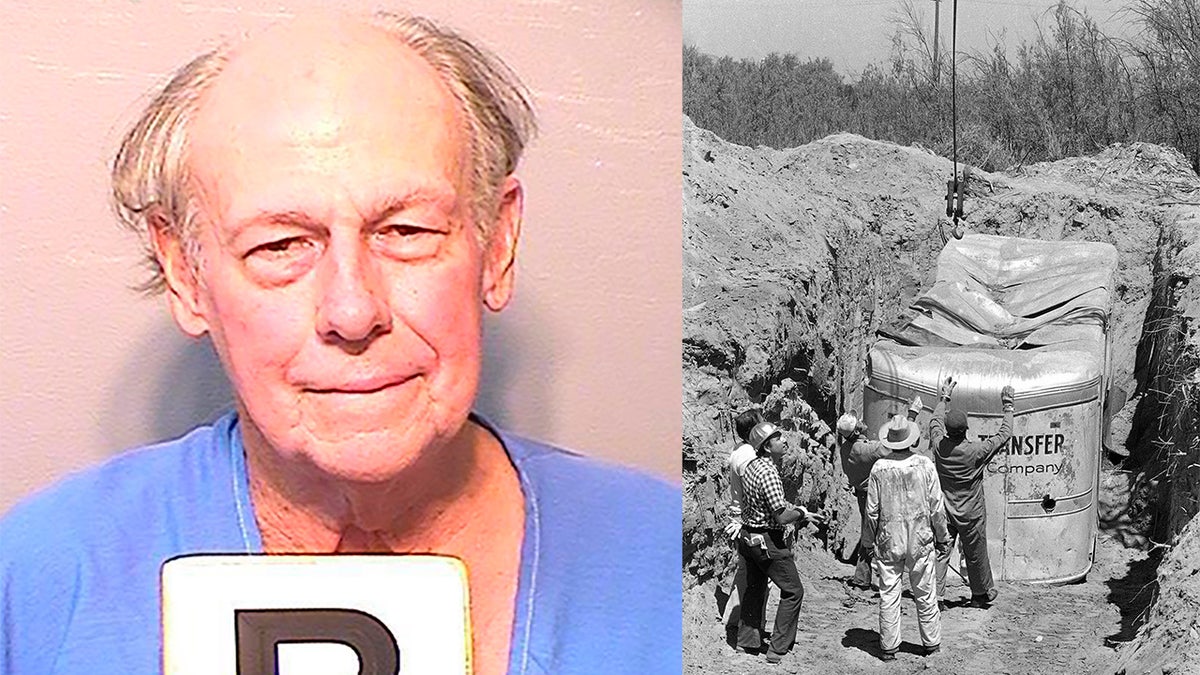
This Oct. 29, 2021, photo provided by the California Department of Corrections and Rehabilitation shows Frederick Woods; In this July 20, 1976, photo, officials remove a moving van buried at a rock quarry in Livermore, Calif., in which 26 Chowchilla school children and their bus driver, Ed Ray were held captive. (Associated Press)
The victims were able to dig their way out more than a day later.
Woods wasn't eligible to attend in person on Tuesday. But he said during his parole hearing in March that he felt he needed money to have acceptance from his parents and "was selfish and immature at that time," while his more recent violations were to benefit the trust fund left him by his late parents.
LISTEN TO "CHOWCHILLA" PODCAST ON FOX NEWS
"I didn't need the money. I wanted the money," Woods said of the ransom attempt.
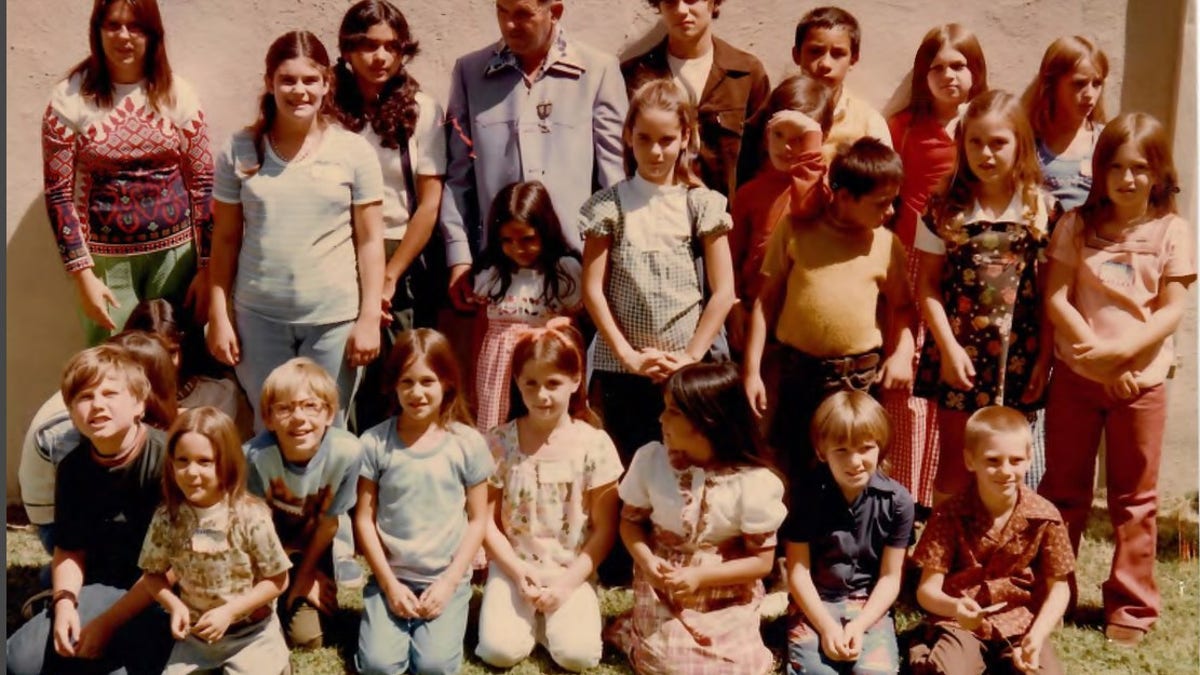
Many of survivors of the Chowchilla kidnapping gather at the Ed Ray Day celebration on August 22, 1976. Ray, the school bus driver, is pictured back row center next to Michael Marshall. (Handout courtesy of Jennifer Brown Hyde)
His attorney, Dominique Banos, said Wednesday that the parole board recognized that Woods "has shown a change in character for the good" and "remains a low risk, and once released from prison he poses no danger or threat to the community."
'NIGHTMARE IN CHOWCHILLA': SURVIVORS OF THE 1976 SCHOOL BUS KIDNAPPING REUNITE AFTER 45 YEARS
Jennifer Brown Hyde, who was 9 at the time, recalled "the lifetime effects of being buried alive and being driven around in a van for 11 hours with no food, water or a bathroom in over 100-degree weather."
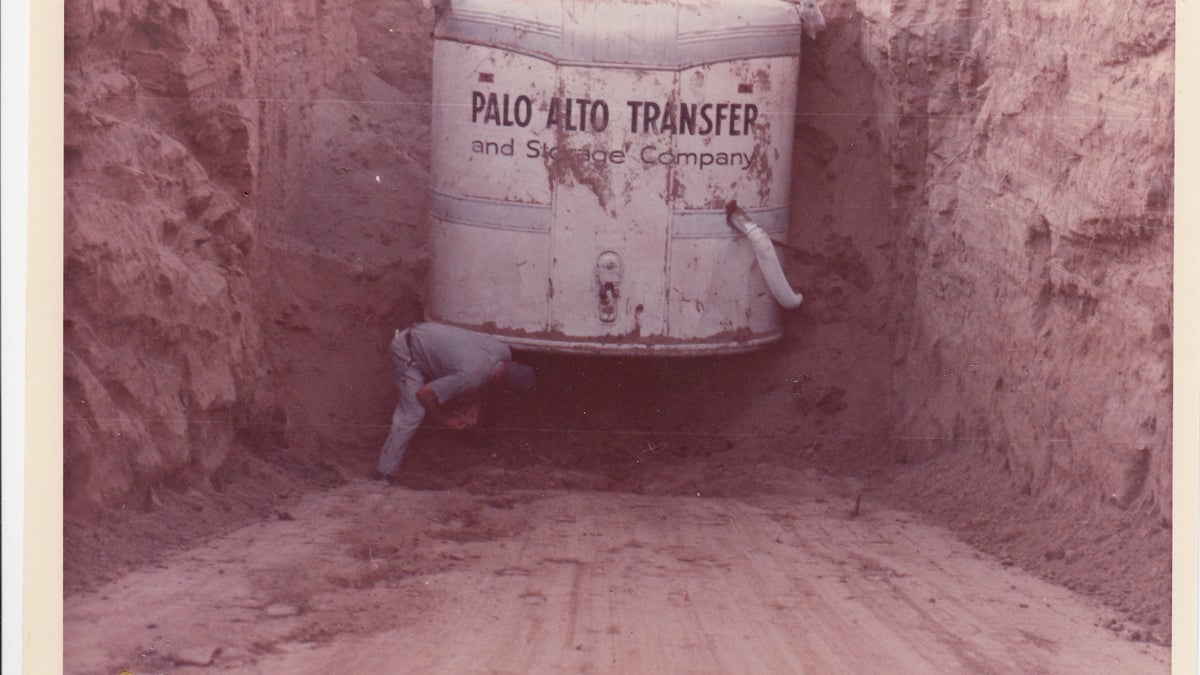
Officials begin to dig out the truck trailer in the Livermore, Calif. rock quarry, in which 26 Chowchilla schoolchildren and their bus driver, Ed Ray were held captive. (ALAMEDA COUNTY D.A.'S OFFICE)
"His mind is still evil and he is about to get what he wants," she told the board. "I want him to serve life in prison, just as I served a lifetime of dealing with the PTSD due to his sense of entitlement."
She said Wednesday that her family is disappointed, but it is "time to close this chapter and continue living the blessed life I have been given." She praised her fellow hostages as "true survivors and not victims."
'NIGHTMARE IN CHOWCHILLA': NOTORIOUS 1976 SCHOOL BUS KIDNAPPING REVISITED
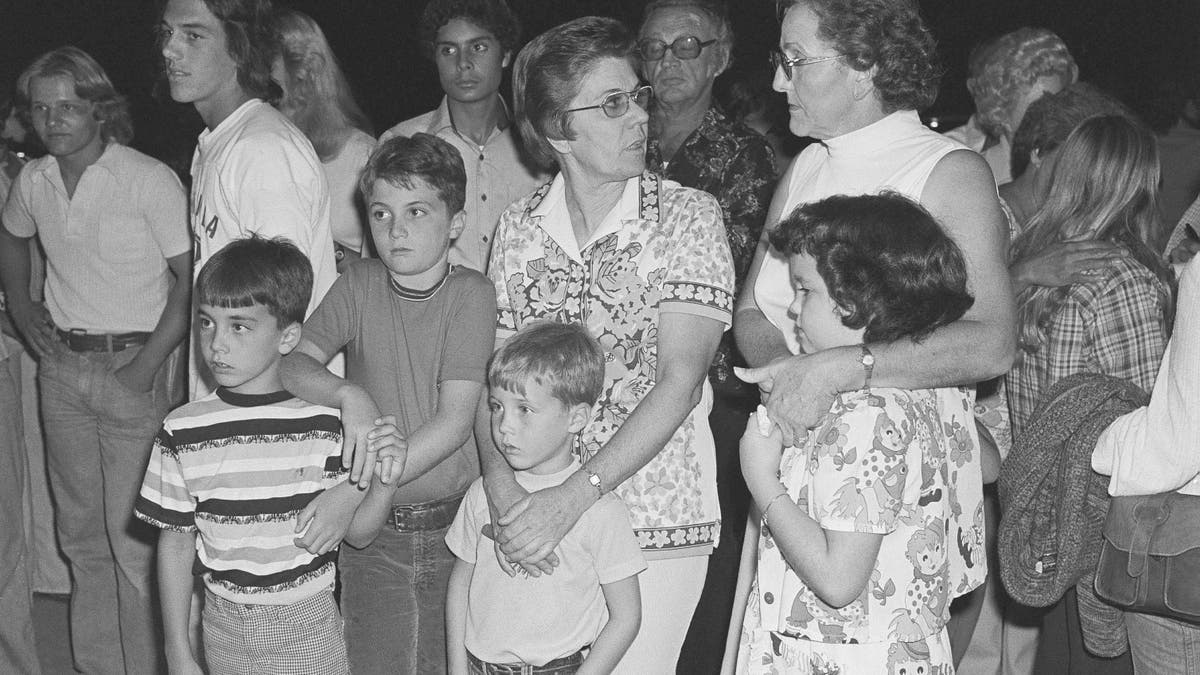
Families of the 26 children who were abducted from their school bus along with the bus driver await word of their fate outside police headquarters in Chowchilla, July 16, 1976. (AP Photo/Jim Palmer)
Gov. Gavin Newsom had asked the board to reconsider its decision. Newsom said Woods "continued to engage in financial related-misconduct in prison," using a contraband cellphone to offer advice on running a Christmas tree farm, a gold mining business and a car dealership. The governor couldn't block Woods' release because he's not convicted of murder, and could only urge the parole board to take a closer look.
Woods' behavior "continues to demonstrate that he is about the money," Madera County District Attorney Sally Moreno said in opposing his parole.
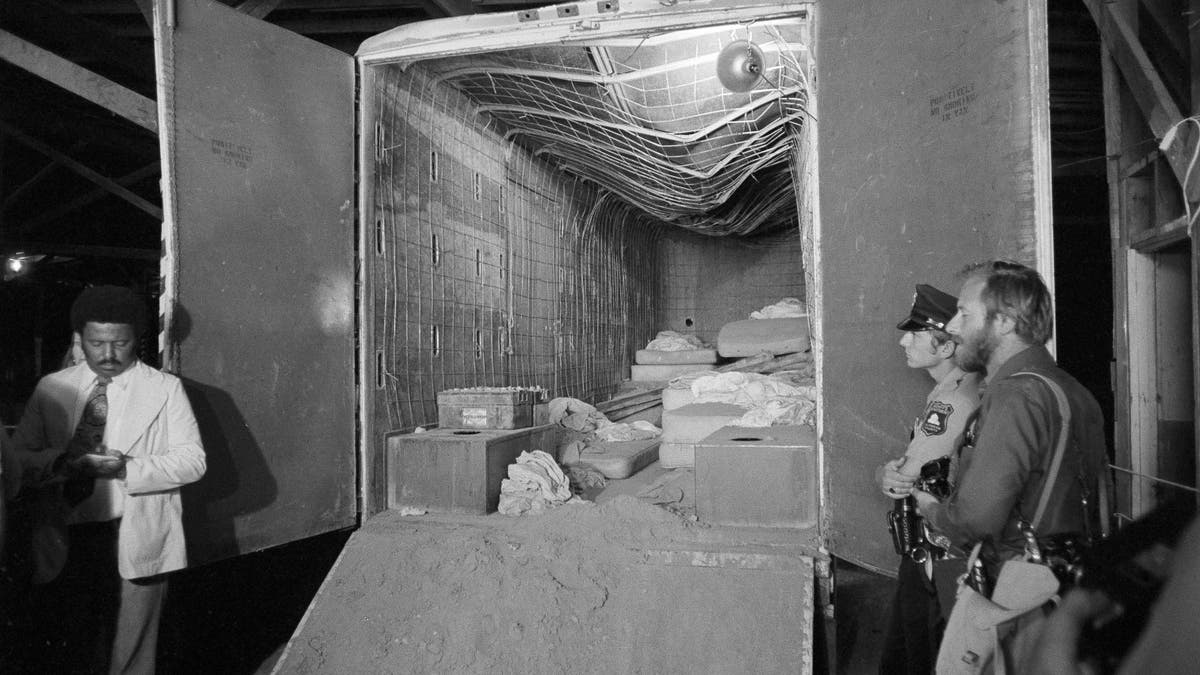
California officials allow photographers to take pictures of the inside of this van in Livermore, Calif., on July 24, 1976. The van was used as a prison for the 26 Chowchilla school children and their bus driver. (AP Photo/Jim Palmer) (AP Photo/Jim Palmer)
Moreno said after the decision that she was angry and frustrated "because justice has been mocked in Madera County," and she fears for the state of society "if you can kidnap a busload of school children, abandon them buried alive and still get out of prison after committing that crime and spending your time in prison flouting the law."
CALIFORNIA MAN WHO KIDNAPPED 26 CHILDREN, BURIED THEM ALIVE IS RECOMMENDED FOR PAROLE
An appeals court ordered Richard Schoenfeld released in 2012, and then-Gov. Jerry Brown paroled James Schoenfeld in 2015.
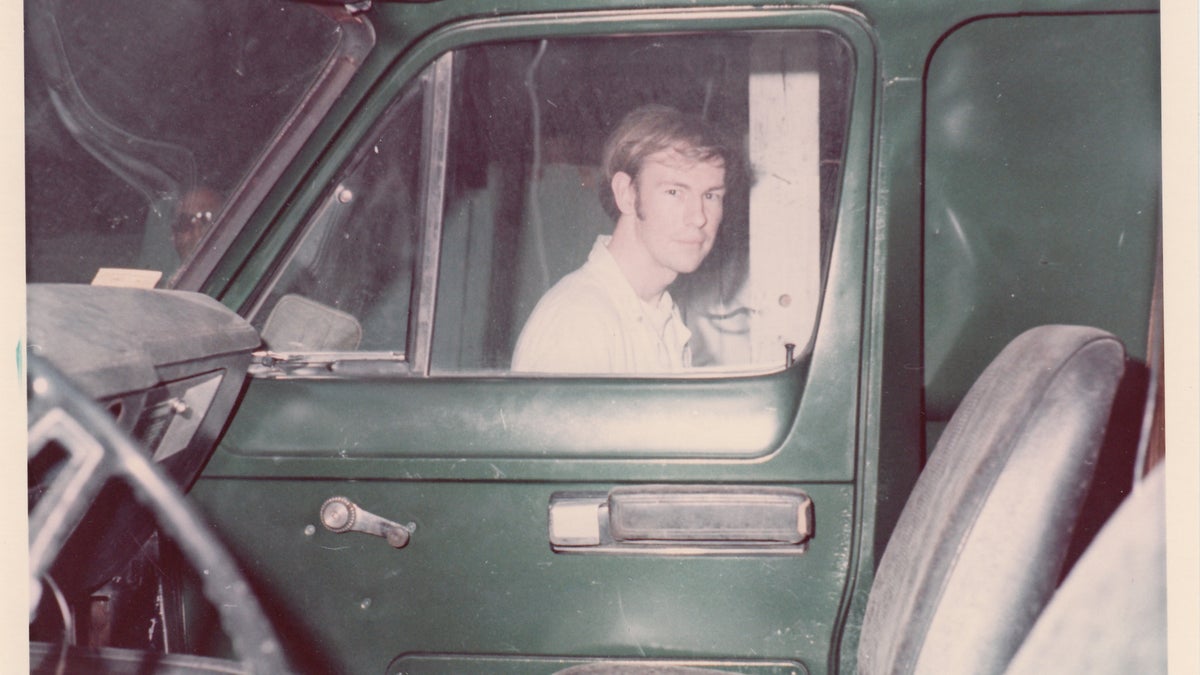
Chowchilla kidnapping ringleader Fred Woods (ALAMEDA COUNTY D.A.'S OFFICE)
Newsom acknowledged that Woods is eligible for consideration both because he was just 24 when he committed the crime and because he is elderly now. He said Woods, who once studied policing at a community college, has also taken steps to improve himself in prison.
CLICK HERE TO GET THE FOX NEWS APP
The governor’s late father, state Judge William Newsom, was on an appellate panel in 1980 that reduced the men’s life sentences to give them a chance at parole. He pushed for their release in 2011, after he retired, noting that no one was seriously physically injured during the kidnapping.
The Associated Press contributed to this report.








































